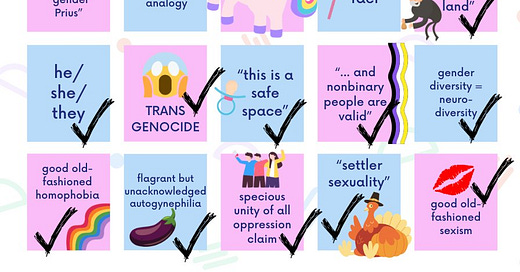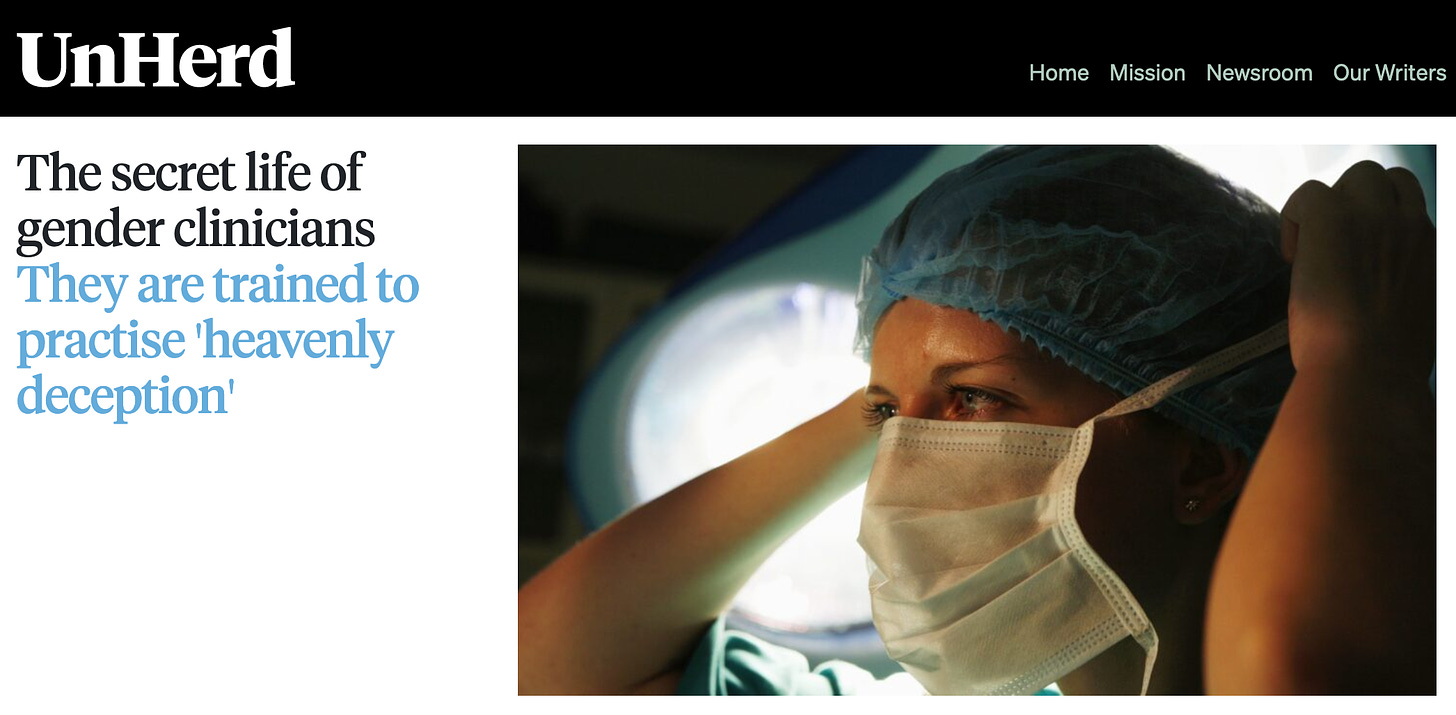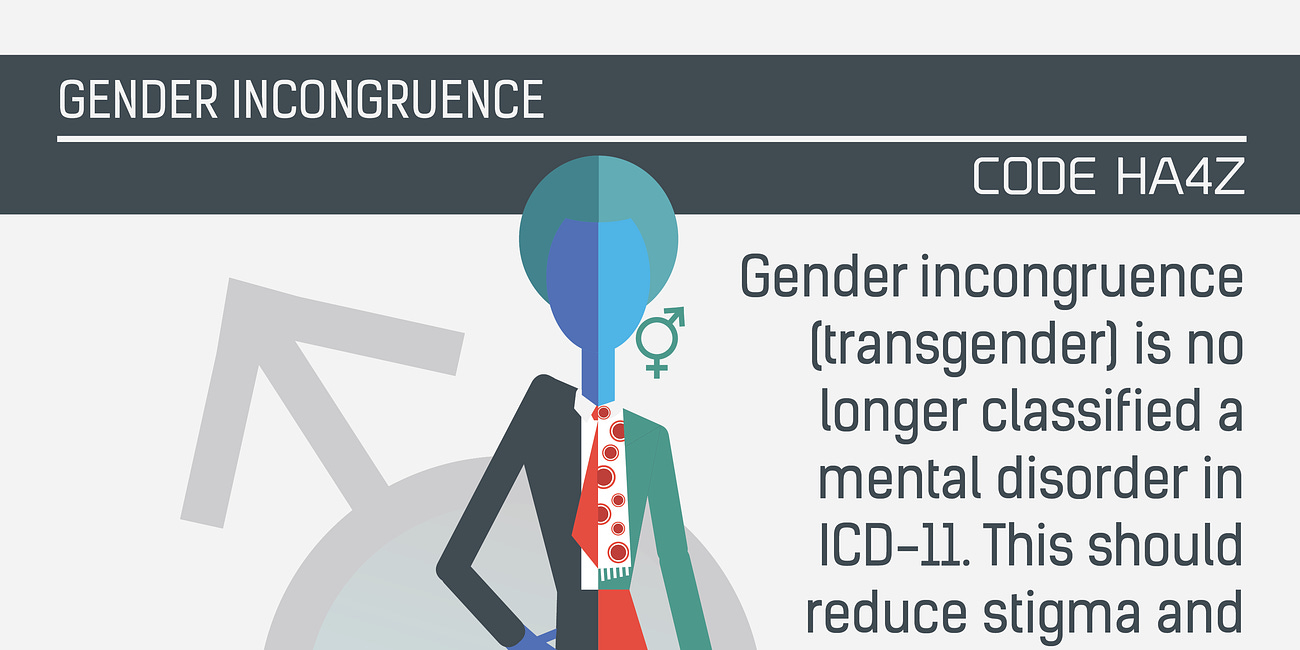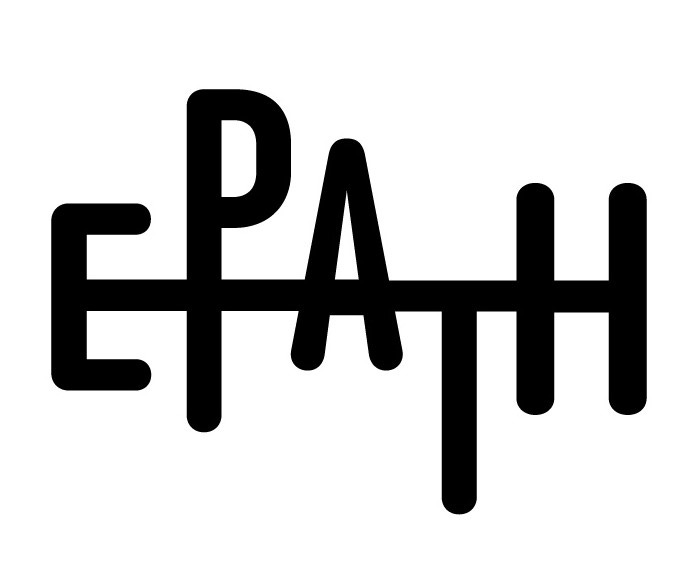Yes, that’s what WPATH really is. They’ve been showing the world for years.
Where Benjamin and I talk about doctors transitioning patients who claim to have multiple personalities, hand-waving psychosis (after all, we let psychotic patients consent to stool softeners!), the shift to ‘embodiment goals,’ and much much more at WPATH’s 2022 conference in Montreal:
My reporting from WPATH, EPATH, and USPATH:
On WPATH’s private forums, clinicians occasionally express reservations about what they’re being expected to do, such as the social worker who wondered whether she should write letters for surgery for “several trans clients with serious mental illness… Even though these clients have a well-established trans gender identity, their likely stability post initiation of HRT [hormone-replacement therapy] or surgery is difficult to predict. What criteria do other people use to determine whether or not they can write a letter supporting surgical transition for this population?”
Her colleagues quickly put her in her place: “My feeling is that, in general, mental illness is not a reason to withhold needed medical care from clients,” an “affirming, anti-oppressive” gender therapist responded. “My assumption is that you’re asking this question because you’re taking seriously your responsibility to care for and guide your clients. Unfortunately, though, I think the broader context in which this question even exists is one in which we, as mental health professionals, have been put inappropriately into gatekeeper roles. I’m not aware of any other medical procedure that requires the approval of a therapist. I think requiring this for trans clients is another way that our healthcare system positions gender-affirming care as ‘optional’ or only for those who can prove they deserve it.”
Another gender clinician referred dismissively to the recommendation that mental illness should be “well controlled” before initiating hormonal and surgical interventions: “I am personally not invested in the ‘well controlled’ criterion phrase unless absolutely necessary… in the last 15 years I had to regrettably decline writing only one letter, mainly [because] the person evaluated was in active psychosis and hallucinated during the assessment session. Other than that, everyone got their assessment letter, insurance approval, and are living [presumably] happily ever after.” Everything hinges on that “presumably”.
For years, gender clinicians have reassured patients and parents that the evidence would eventually bear out the lofty promises of transition: that transition is life-saving; that psychotherapeutic approaches to gender distress don’t work and instead constitute unethical “conversion therapy”. But as the data starts to come in, transition appears unlikely to live up to these high expectations.
During the Ireland conference, researchers bracketed discouraging findings with upbeat statements of belief such as: “We all know gender-affirming care is effective.” A Swedish researcher who found that psychiatric hospitalisation increased after patients initiated puberty blockers or cross-sex hormones told the audience that she was “really concerned”, not about the results themselves, but “about how results will be interpreted” because, “as you all know, there are improved mental health outcomes following puberty blockers and gender-affirming hormones” — even when the research can’t find those benefits.
With Mia and Benjamin:
USPATH Bingo (though honestly you could use this for any trans conference pr awareness week)












Great reporting for years allowing continued progress to end this medical scandal. Thank you for all your hard work and exposure.
I've been following you for about a year and read most of your great articles. I've also read the reduxx article about high profile scientists engaging in horrific stuff and also advising wpath. again males are suddenly established as the whistle blowers, while women have done the digging (hello matt). Even findings of reduxx's are found in their aritcles without any citation. really disappointing.
significant amounts of work and time have been spent into doing this over a long period of time. I see you and am thankful for your work.